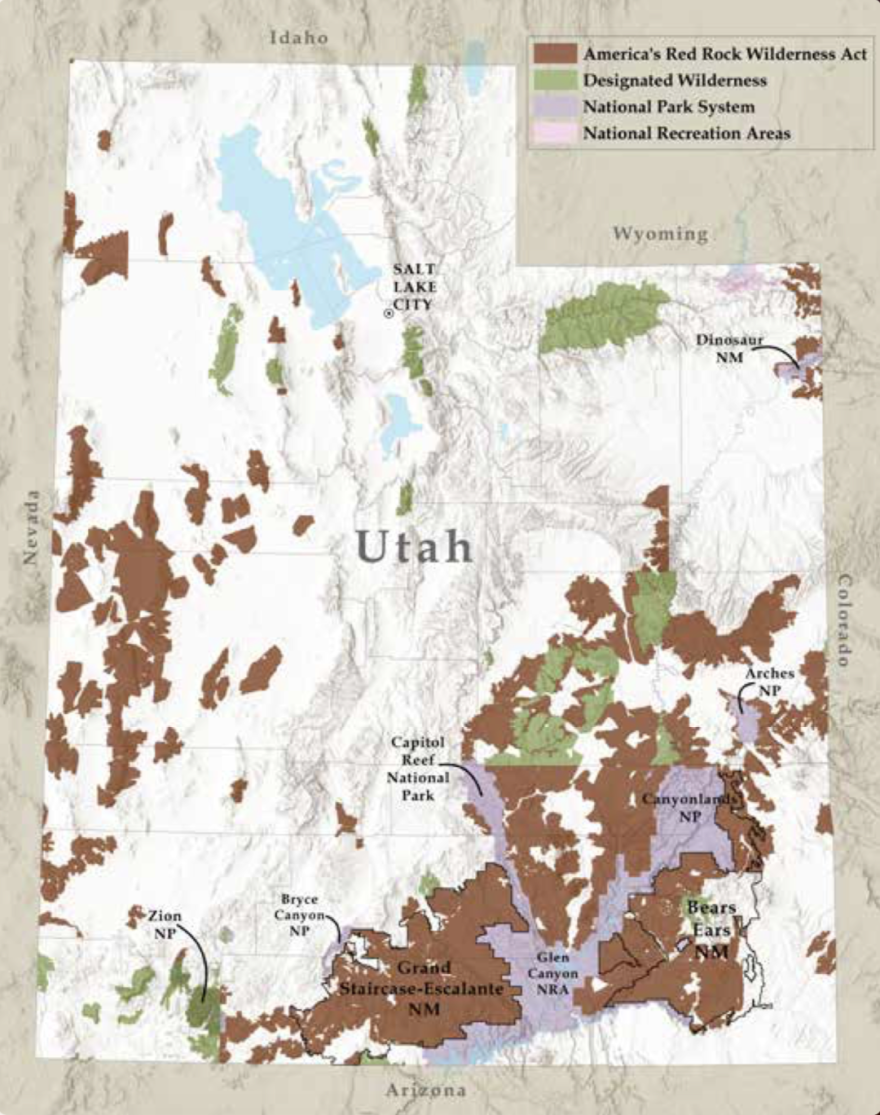A study released by the Southern Utah Wilderness Alliance shows a bill to protect millions of acres of public land in Utah would help slow climate change. But the legislation has to get through Congress first.
America’s Red Rock Wilderness Act would prevent extraction and development on 8 million acres of public land scattered throughout western and southern Utah, from Moab to Utah’s West Desert.

That land stores a huge amount of carbon, both on its surface and underground, according to climate scientist Laura Hilberg. She was commissioned to study the landscape by the Southern Utah Wilderness Alliance.
“So what we want to do is keep whatever is already there, there. And make sure the systems that capture [carbon] from the atmosphere continue to function,” Hilberg said.
She found the land covered in the bill could reduce atmospheric carbon by 30 million metric tons by the end of the century, if left undisturbed. That’s the equivalent of saving 3 billion gallons of gasoline, according to the Environmental Protection Agency’s greenhouse gas equivalencies calculator.
But Utah Republicans have historically fought against it.
The bill was first introduced by a Utah Democrat in 1989. Sen. Dick Durbin, a high-ranking Democrat from Illinois, has filed it in each Congress since 1997, and the bill received its only hearing to date in 2009.
Sen. Mitt Romney, R-UT, and former Utah Rep. Rob Bishop filed a bill in 2019 to designate 289,000 acres of wilderness in an Illinois national forest after Durbin last filed the bill.
Sharon Buccino is with the Natural Resources Defense Council, and she said the bill could pass without support from any members of Utah’s Congressional delegation.
“Consistently, Congress is able to come together to pass public lands protection,” she said. “And that’s precisely because there is diverse and wide support across the country for that.”
Buccino said the Red Rock Wilderness Act would also help protect important migration corridors for wildlife, allowing animals to better withstand the effects of climate change.
Durbin will introduce the legislation in the Senate next month, according to the Southern Utah Wilderness Alliance, and Rep. Alan Lowenthal, D-California, will introduce it in the House.




